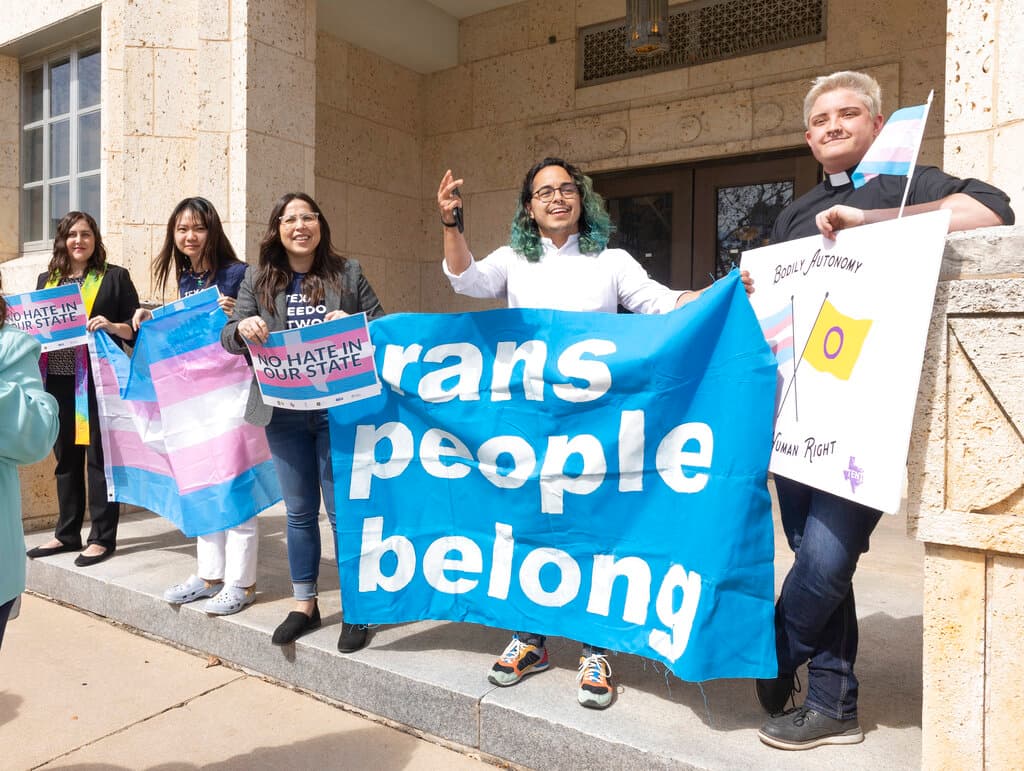Competing Appeals Court Rulings on Transgender Bathroom Rules Set Stage for Supreme Court Intervention
Because the 11th Circuit’s ruling is the opposite of a ruling by Virginia’s Fourth Circuit on the same topic, the decision could prompt the Supreme Court to get involved.

A federal appeals court decision upholding a school district’s right to require students to use bathrooms set aside for people of the same sex has upped the odds that an issue dividing many communities across the country may end up at the Supreme Court sooner rather than later.
On Friday, the 11th U.S. Circuit Court of Appeals in Florida ruled that the St. Johns County School Board did not infringe on the constitutional rights of a transgender student by requiring him to use gender-neutral restrooms or those matching his biological sex. The court also dismissed the idea that such rules are in violation of federal Title IX civil rights laws outlawing sexual discrimination.
The plaintiff in the case, Drew Adams, identifies as male but was born female. He enrolled in the district in Ponte Vedra Beach just south of Jacksonville in fourth grade as a female, but by the end of eighth grade began identifying as a boy — using “he” and “him” pronouns and using the male restroom at the middle school he attended.
When Adams enrolled at Nease High School, after receiving complaints from fellow students, the school began requiring him to use either the girls restroom or one of the gender-neutral restrooms the school had designated following an extensive review of its LGBT policies.
The district, the appeals court’s majority opinion said, “went to great lengths” to accommodate the 16 out of more than 40,000 students in the district who identify as transgender, including Adams, who by then had, according to the court, begun taking birth control to stop menstruation and testosterone to appear more masculine and underwent a “double-incision mastectomy” to remove breast tissue.
The district “provided separate bathrooms for each of the biological sexes,” the court’s opinion states. “And to accommodate transgender students, the School Board has provided single-stall, sex-neutral bathrooms, which Title IX neither requires nor prohibits. Nothing about this bathroom policy violates Title IX.”
Adams and his parents sued the school district in an effort to force it to allow him to use male restrooms, and a federal district court in Florida ruled in their favor. In a 7-to-4 decision, however, the Circuit Court overturned that decision. The appeals court decision was split down party lines, with seven justices appointed by Republican presidents aligning themselves with the school district and four appointed by Democrats siding with the plaintiff.
In an opinion concurring with the majority opinion, Judge Barbara Lagoa warned that upholding the plaintiff’s argument that “sex” as used in Title IX includes the concept of “gender identity” or “transgender status” would open the door to student athletes competing on teams composed of members of the opposite sex and undermine the very point of Title IX.
“It is neither myth nor outdated stereotype that there are inherent differences between those born male and those born female and that those born male, including transgender women and girls, have physiological advantages in many sports,” Ms. Lagoa wrote.
“As a matter of principled statutory interpretation, there can only be one definition of ‘sex’ under Title IX and its implementing regulations,” Ms. Lagoa continues. “Departing from a biological and reproductive understanding of such a definition, as supported by the overwhelming majority of drafting-era dictionaries, would have vast societal consequences and significantly impact girls’ and women’s rights and sports.”
“The majority opinion is correct not to depart from such an understanding absent a clear statement from Congress,” she writes. “Whether ‘sex,’ as set forth in a statute enacted in 1972, should be updated to include ‘gender identity’ or ‘transgender status’ is best left for Congress and the democratic and legislative processes — not to unelected members of the Judiciary.”
In her dissenting opinion, Judge Jill Pryor said the majority opinion implies that the plaintiff is “unfit for equal protection based on his transgender status.”
“Each time teenager Andrew Adams needed to use the bathroom at his school, Allen D. Nease High School, he was forced to endure a stigmatizing and humiliating walk of shame — past the boys’ bathrooms and into a single-stall ‘gender neutral’ bathroom,” Ms. Pryor said. “The experience left him feeling unworthy, like ‘something that needs to be put away.’”
Because the 11th Circuit’s ruling is the opposite of a ruling by the Fourth Circuit appeals court in Virginia in a similar case, legal scholars said, the ruling is likely to prompt the Supreme Court to get involved at some point. Through its Department of Education, the Biden administration has issued guidance to schools suggesting that Title IX prohibits discrimination against students because of their gender identity as well as their sex, but Congress has yet to weigh in on the matter.
In an update about the case in his newsletter, George Washington University Law Professor Jonathan Turley said the conflicting opinions between the Fourth and 11th circuits “would make for an ideal basis for the Court to consider the constitutional and statutory issues by granting a petition for writ of certiorari.” In June 2021, the court declined to hear an appeal of the Fourth Circuit decision.
“The accommodation of the gender neutral bathroom makes this policy particularly interesting for review,” Mr. Turley said. “While some would argue that this amounts to a gender version of ‘separation but equal,’ the district sought a middle position on the controversy. However, much turns on the definition of ‘sex’ under Title IX.”

